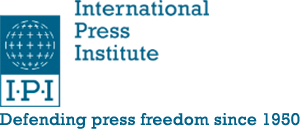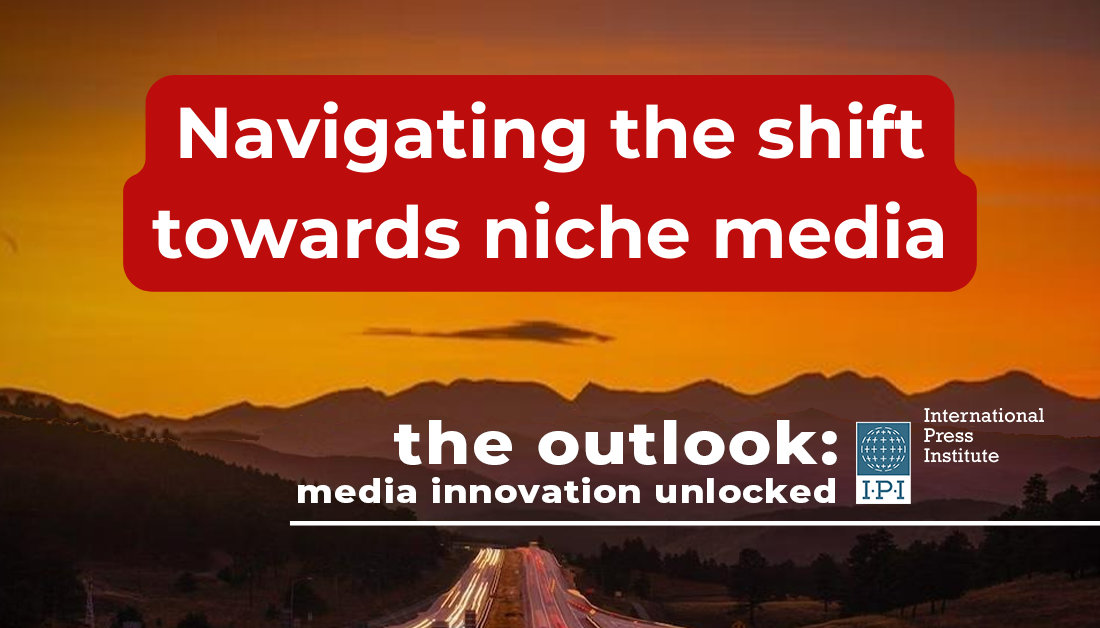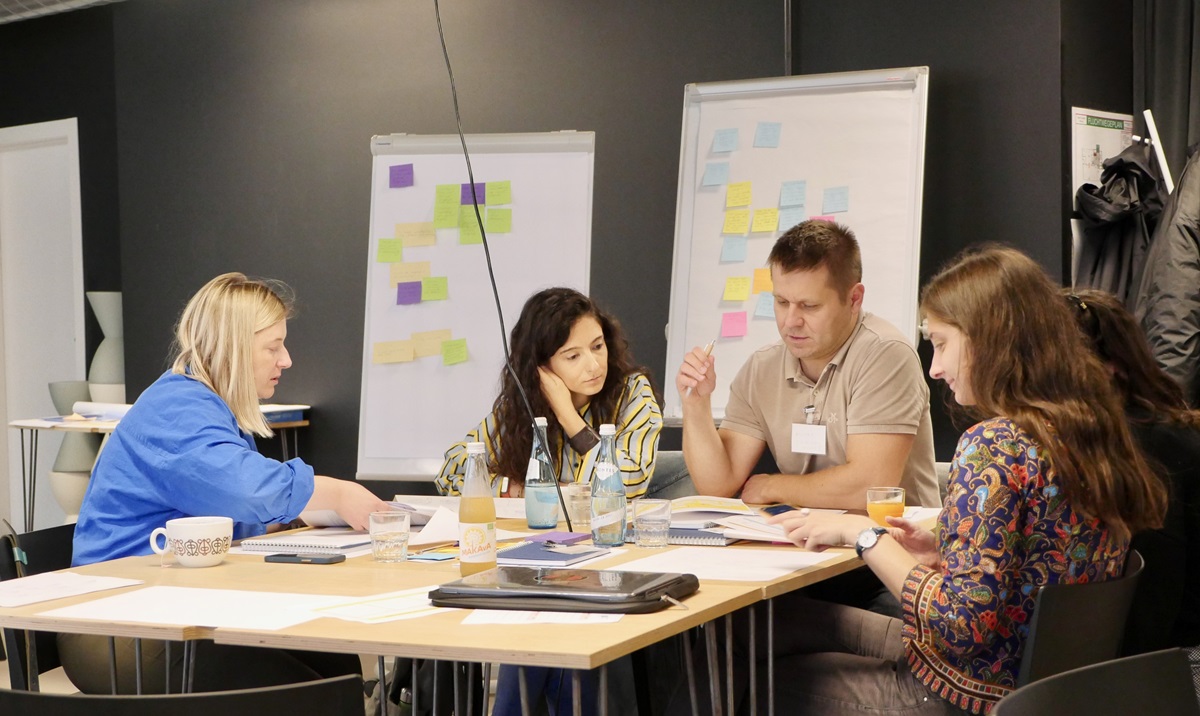This text comes from IPI’s newsletter The Outlook. Click here to sign up to receive future editions direct to your inbox.
This is The Outlook, IPI’s media innovation newsletter, where we take a look at tools and strategies for innovation, and learn from newsrooms that are implementing them.
Today we are thinking about the state of the news industry. The U.S. has seen a record number of cuts to media jobs in the first few weeks of the year, for reasons including high debt and high interest rates and a slowdown in both the advertising and subscription markets.
Financial challenges certainly aren’t unique to the U.S. So where can we look for optimism, when some of the models the industry has seen as a solution are now under pressure?
The challenge: Finding a business model for the long term, while keeping the lights on
One thing the industry is not short on is good ideas that fill information and market gaps.
IPI has worked with dozens of organizations from across the globe, most recently in our Local News Accelerator. They are working with local communities to produce journalism; leading investigations in under-covered regions; shining a light on crucial topics like climate and health news; and amplifying the concerns of marginalized groups.
The projects we have worked on with these media fill us with hope and reflect a broader shift towards niche, entrepreneurial media.
Independent media founders often have backgrounds in journalism and/or as members of the communities they serve. They have a deep understanding of an audience, its information needs and the way its members navigate media. This is the first step to building a strong product, well positioned to make a success of subscription or community-based revenue models, or advertising tailored to a niche audience.
But “build it and they will come” is not a business model, even when what you’re building is much-needed.
The solution: Get your house in order early on
Business skills are survival skills. That includes pitching (discussed in our previous newsletter) but also negotiating, hiring and retaining staff, budgeting, financial and cash flow management.
During our Local News Accelerator and Transition Accelerator, we support media to develop these skills at an early stage, alongside refining content and community models. In these programmes, we’ve worked with media who have already proved there is an audience for their content.
Our teams used tools like the business model canvas; worked on budgeting to develop a roadmap for growth, and learned how to build a tech stack by finding the right tools for your needs.
Operating on a lean budget is challenging, but coupled with a deep knowledge of their audience, it can help teams focus on developing the right model from the start to build towards sustainability, rather than later having to do a costly pivot.
Ecuadorian investigative newsroom Tierra de Nadie shared their experience of the accelerator: “The first step was getting our house in order: we worked on an internal structure, defined roles, and assigned specific functions to team members.”
Successes like these don’t grab industry headlines, but they are examples we can learn from. In Costa Rica, IPI profiled local media which serve local and hyperlocal audiences with carefully tailored content.
One of them, San Carlos Digital, covers operational costs through government advertising which it’s eligible for due to steady local traffic. Meanwhile, The Voice of Guanacaste is sustained by a combination of grants, advertising, paid content and membership.
Both say that their direct connection with their communities has allowed them to survive in a competitive media environment, focusing their limited resources on the content their communities value and leveraging their small but loyal audiences for a range of revenue streams. Read more about these organizations here.
The Takeaway: There’s space for growth.
It’s not necessarily the industry that’s in crisis, but rather the older models of serving large and generic audiences. In order to pursue innovation as a media business, the foundations of a solid business model must be there. Getting these skills in place at the start will free up space and energy for creative new ideas, and to focus on the things you do best.
News from IPI’s Media Sustainability Team
You can read more about the Local News Accelerator and what our teams learned on the IPI website.
Registration is open for the IPI World Congress and Media Innovation Festival, where we’ll be hosting panels, workshops and talks on all aspects of innovation in media and securing a free, independent press. Join us in Sarajevo to be part of the conversation.
Funding opportunities for media
- Freelancers: You can apply for IJ4EU’s Freelancer Support Scheme from IPI and partners, which provides teams of journalists working outside of newsroom structures with grants of up to €20,000 along with mentoring and coaching support. The deadline is March 31.
- Also from IJ4EU, the Investigation Support Scheme provides financial support of between €5,000 and €50,000 to cross-border journalistic teams working on investigations of public interest in Europe. This is also a March 31 deadline.
- The Open Society AI in Journalism Futures project invites participants to apply to share their vision of how AI might change the news. The 40 selected applicants will be invited to participate in a convening in Italy on April 15-16, 2024, and share their vision of a future with AI, and will also receive a $1,000 honorarium. The deadline is February 23.
- The European Media and Information Fund has several open calls at the moment. One to draw your attention to is the call for Boosting Fact-checking Activities in Europe, which offers grants of up to €80,000 for fact-checking projects. It’s only for activities within the EU, EFTA and the UK, with the exception that in the context of the war in Ukraine, it’s also open to projects collaborating with Ukrainian journalists or media. The seventh round of funding closes on February 29.
- The Fellowship for Advancing Science Journalism in Africa and the Middle East will offer a $40,000 stipend plus an additional housing stipend and health insurance to support one fellow to participate in the Knight Science Journalism Program in the fall semester of this year. It’s open to journalists from the region with at least three years’ experience in covering science, health, and the environment. The deadline is March 1.





